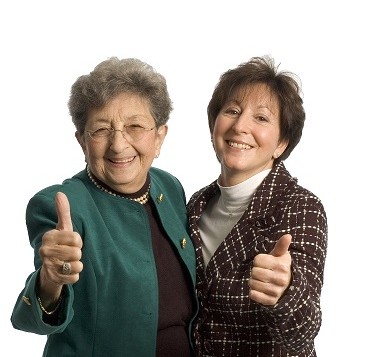7 Primary Duties & Responsibilities of a Senior Caregiver
Senior caregiving is one of the most rewarding experiences in life but can often times be a challenge, both mentally and physically. Being a caregiver comes with great responsibility; it helps to prepare yourself prior becoming a senior caregiver. Start by reading the 7 primary responsibilities of a senior caregiver.

Photo Credit | Deposit Photos | @ rejlerich
Find out more about the 7 basic duties of a senior caregiver.
1. Prepare Care Plan
2. Prepare Meals
3. Housekeeping
4. Monitor Medication
5. Transportation
6. Monitor Performance
7. Companionship
Prepare Care Plan. Examine the seniors’ strengths and weaknesses to help create a specific care plan and to determine how many hours a day or week a senior caregiver will be needed.
Preparing meals. A significant part of meal preparation is making sure to purchase items rich in vitamins and minerals. Grocery shopping coupled with healthy meal preparation is critical to the health of seniors. Preparing meals ahead is also a great option; you can then freeze each meal to use throughout the week.
Housekeeping. This includes vacuuming, dishes, taking out the trash, dusting, etc. Maintaining a home tends to require more physical effort as you age; which is why a caregiver is essential for this task. A dirty home can cause deteriorating living conditions; to avoid this, housekeeping should be done at least once a week or once every other week.
Monitor Medication. Read and understand the medical plan implemented for the senior. This will determine which day and what time of the day medication should be given.
Transportation. This means both by vehicle and moving. Taking care of a senior includes helping them get up every day (more than once if possible) and walk. Exercise is essential to caregiving. Also, driving them where they need to be – whether that is a doctor’s appointment, a haircut or to the Walmart to get much needed items.
Monitor Performance. Keep a close eye on how they are doing. Make adjustments if something isn’t working. Watch for side effects or problems with medications the senior is taking and speak with the medical professional if concerns arise.
Companionship. One of the most important responsibilities of a caregiver is being a friend, someone to talk to you, and someone to confide in. Being a caregiver is not only about the medical and physical aspects of caring, it is also about being an empathetic friend.
We understand that being a caregiver to a senior can be stressful. Moves for Seniors specializes in elderly moving services so that you can focus on providing the best care while we take care of the rest. Contact us at (800) 227-0515 or click here for a free move consultation.